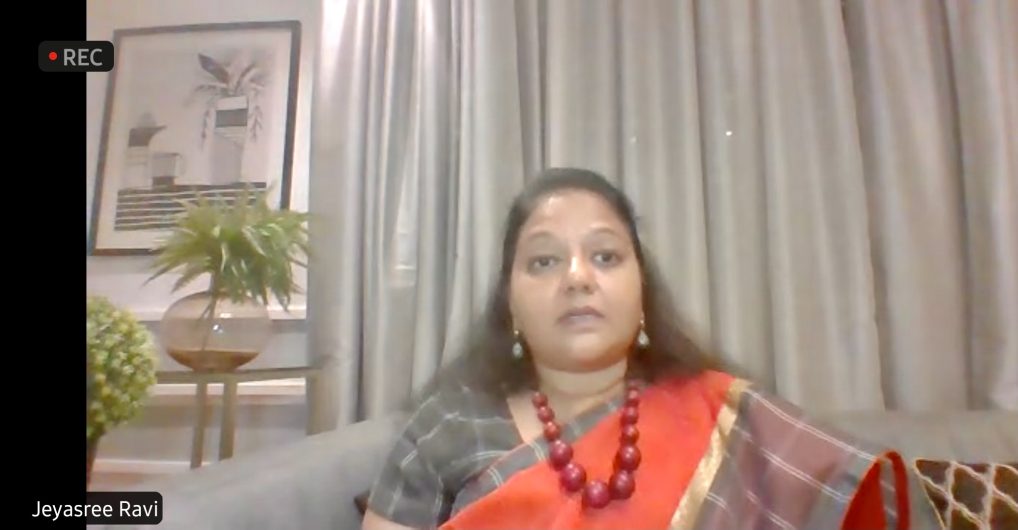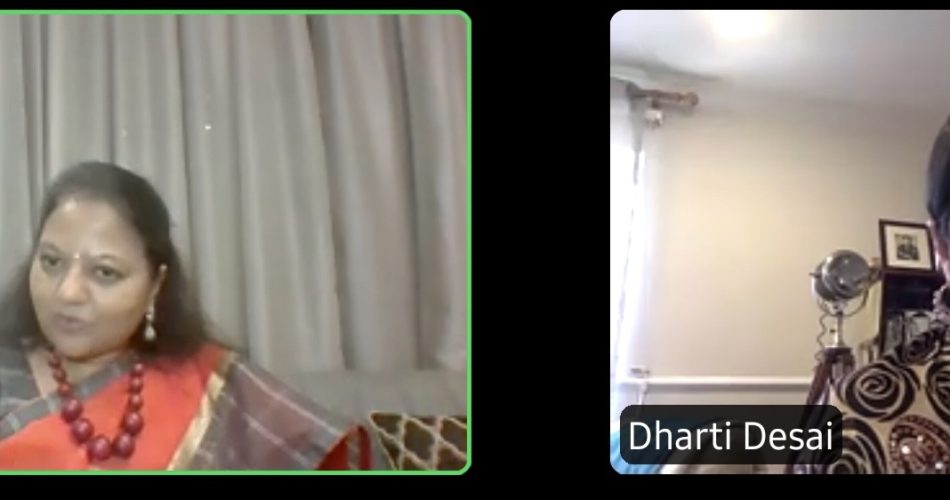Jeyashree started with her school days, when in the Holy Angels convert in T.Nagar, Chennai, how a class teacher identified her inherent leadership skills and nurtured it in a non-imposing and friendly manner. This came to her aid decades later when she was deciding about starting her own business, the school days encouragement gave her the confidence to take the plunge. Coming from a conservative family and a community where girls were married off early – Jeyashree got married when she had just crossed 20. She is the daughter of Mr Nalli Kuppuswami Chetti, the owner of the famous Nilk Silks, a retail chain that has showrooms in many countries around the world and a 90+ years legacy. And she got married to Mr Ravi, who comes from another reputed silk saree retailing family, the Kumaran Silks.
Having watched her father run the business and spend a lot of time in the showrooms observing the sales, Jeyashree had a flair for doing business, unfortunately both the families in her life had the tradition of only the male children inheriting the family business. The reason commonly quoted in their community for not passing the baton of the family business to the daughters was the fear of the influence and interference by the son-in-law and his family – in other words, dilution of family lineage in the business.
The above argument is something I am quite familiar with. Nearly two decades ago, I have heard my father and my uncles raising reservations on the same lines in the meetings of our family business which is also 90+ years old, when the subject of succession planning came up. My elder sister and one of my cousin sisters were already helping my dad in running the business, which was welcomed, but girls heading (or owning) the business was discouraged for the same reasons Jeyashree had mentioned frankly in the talk. In this background, I am happy to see the progress happening in recent years, the law also ensures equal inheritance to the girls now.
Venkatarangan
As a result, after getting married, business was not in her minds and she was focused on completing her higher education and computer courses, which she did with flying colours. After having three children (two daughters and a son), she realised she wanted to do something independently on her own – to bring out the latent talent within her. That’s when she decided to start her own brand of silk sarees, she got the approval of her father, support of her husband and a big dose of encouragement from her mother. Her brother who was handling the affairs of Nalli Silks gave his support on the condition it is only till the time her husband was in full agreement to her business activities.
She agreed and started the business. She sought the help of a business consultant, who guided her with the first steps. She didn’t want to get into the same space of retail sarees which Nalli, Kumaran and many others were doing, instead she started Palam with the idea of exporting sarees to other countries. Having tasted a bit of success with that, she ventured into retailing as a backstop to the exports. Her retail venture was done differently – she encouraged weavers to do lightweight silk sarees, which required little maintenance and one that any lady with minimum practice could carry comfortably – Jeyashree experimented with newer designs that were earlier not tried in sarees which were always viewed as something you wore only on traditional events and family functions. She pioneered the concept of having a fashion show where Silk Sarees were worn on the ramp walk, something that was not done (or rarely) earlier. After decades, Palam is a successful business on its own today and Jeyashree is a proud women entrepreneur and inspiration for future generations.

It is fascinating to learn about her above journey of starting on her own, succeeding in a competitive business, and becoming a trail-blazer – today many other retailers in Silk Sarees have followed the concepts Palam silks pioneered. I was impressed with the way Jeyashree narrated candidly her ordeals – she didn’t hide the fact her families were not in favour of women inheriting family businesses. She also records her happiness to see her niece (her brother’s daughter) now being involved in running Nalli and holding a high-office on her own in the business – a big stride of progress for women empowerment in a conservative community environment. Women leaders like Jeyashree are certainly the reason for the progress.
In the closing remarks, Jeyashree said the option to head and own the business is available equally to her two daughters as much as it was for her son – but it is for them to decide if they want to do this business or take up a different career.
This was an inspiring and encouraging listen. Thanks to TiE Chennai.



Comments